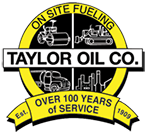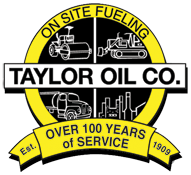The Need For Higher-Value Diesel Fuel – If you’ve ever been to a diesel station before, you’ve seen the dark patch of stained concrete underneath the fuel pump. This is common, as the diesel fuel often overflows as it’s being pumped into the tank. That’s because diesel often foams up, just like when you pour soda into a glass too fast.
On a case by case basis, it doesn’t seem like a big waste – it’s just a few ounces of fuel, right? But when you think about how often this happens all across the country, you’ll realize how it adds up. Not to mention — after foaming happens, it takes a while for the fuel to settle back down, which means your tank isn’t really full after all. Take that soda-fizz-in-a-glass example.
If you are a fleet operator responsible for dozens of trucks on the road, you know this waste results in unnecessary downtime for the whole fleet and higher costs in the long run.
Foaming diesel is just one issue commercial truckers may be oblivious to in their daily operations. In fact, it could be contributing to the degrading quality of diesel fuel. However, it’s entirely preventable.
Advantages of Additive Enhancement
Widespread diesel quality in this country is sorely lacking in comparison with other countries. We can certainly improve, though. One way is through the use of anti-foam additives and advanced deposit control additives designed to help diesel engines operate more efficiently, cleanly and reliably. Not only do these additives keep trucks on the road longer at one time, they help them enjoy longer lifespans overall.
You may wonder why these additive-enhanced diesel fuels have not gained higher market penetration in the United States. High-performance additives are common among name-brand gasoline retailers throughout the country, meeting the demand for higher detergency levels in gas for regular vehicles. These additives:
- Reduce deposits
- Prevent engine damage
- Ensure better engine performance
However, while this works well for passenger car drivers, we can’t forget about the heavy-duty diesel trucks. These trucks are logging thousands of miles all over the country, and the impact is big. American regulatory measures, unfortunately, don’t place as high a priority on diesel quality as they do gasoline; however, the benefits of wider-spread, higher-performance diesel are significant.
Why is Additive-Enhanced Diesel Critical?
Industry leaders have been pushing for widespread use of higher-performance diesel for a while, but more can be done. OEMs want to implement higher-quality fuels to augment the performance of their hardware, believing that diesel fuel regulations have been left in the dust by advancements in other areas such as customer demands, engine design, and broader emissions regulations.
Today’s diesel engines are certainly more complex, meaning the fuels and fluids need to operate them could be contributing to those complexities. Modern diesel vehicles are in a race to meet demands in fuel economy, emissions, power and reliability targets. As a result, fuel quality can ensure more reliable performance.
Higher-quality diesel fuels can:
- Reduce internal and external deposits on fuel injectors
- Improve lubricity for less wear on injectors and engine
- Improve fuel stability, resulting in fewer deposits in fuel system components
Poor quality fuel tends to have a gradual, negative impact on the overall power of the engine – even if your drivers don’t notice an immediate loss in torque. However, eventually, loss in performance can become more serious down the road. Additionally, fuel injector deposit issues can lead to a three-percent loss in fuel economy overall. This may not seem like a lot but it is for a Class-8 truck going from coast to coast.
Engines will continue to advance, which means high-performance fuel will become even more important. The fuels industry has to ensure high-performance diesel fuel becomes more mainstream in the marketplace.
Learn about our diesel fuel options here at Taylor Oil. Contact us today!


